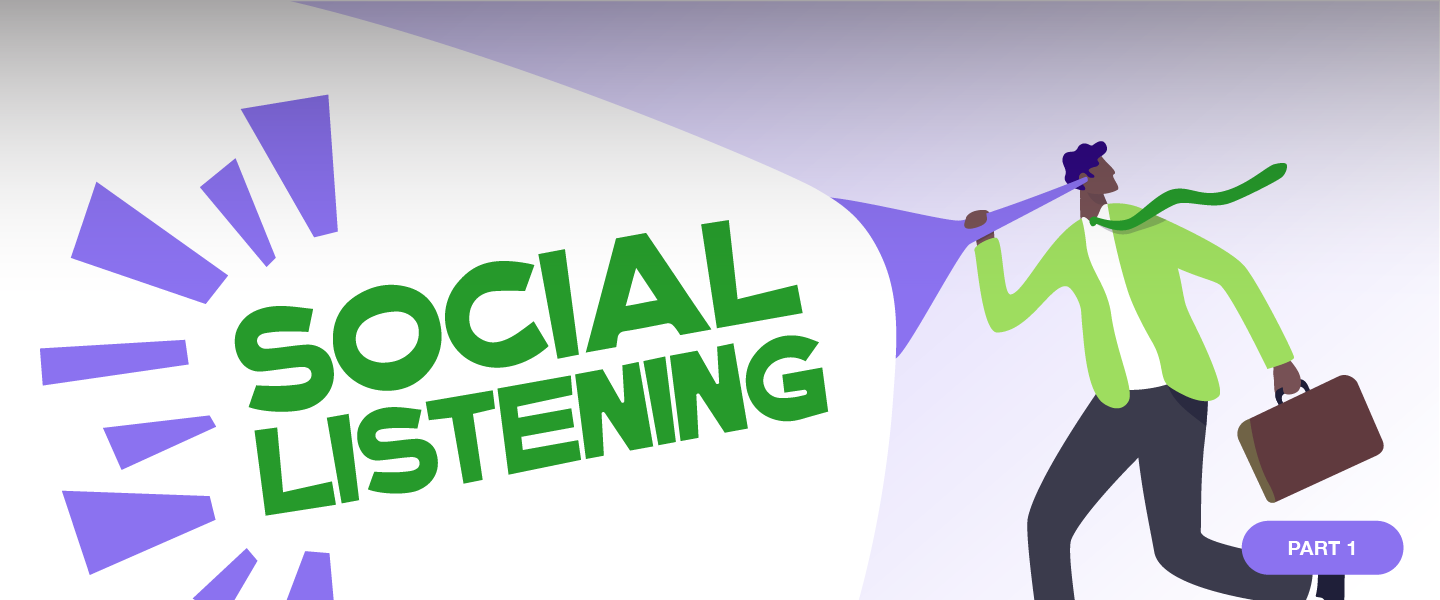Social media was once a place for small-scale interactions, but it’s now a hub for turning prospective customers into loyal fans and bringing a brand to life. While community management and content strategies are essential ways of maintaining a brand’s social media presence, effectively establishing trust between the brand and the audience can’t happen without knowing exactly how social networks and the internet at large perceive it. That’s where social listening comes in.
Social listening is the practice of tracking mentions of a brand on social media and analyzing those conversations for insights. Brands will often monitor mentions of their competitors and relevant industry keywords alongside mentions of themselves to determine their share of voice. Proactive social listening allows brands to understand how customers feel in real-time and better determine what customers want.
Social listening tools bring far more data to the table than natively searching for your brand keywords on social platforms (and they also analyze and synthesize the data in a fraction of the time.) According to Hootsuite’s recent Social Media Trends survey, social listening has increased in value for various brands in recent years. Many brands found social listening particularly helpful during the pandemic, when they used it to better understand customers’ changing needs and respond to their questions in real-time.
If you’re ready to dive into the world of social listening, consider first the goals you’d like to achieve. Will your brand use social listening to assist with crisis management and customer service? Will you use it to track your brand’s health and reputation? Or do you want to keep a pulse check on the latest trends and cultural movements?
There’s no wrong answer here, but let’s say you’ll use social listening to understand your brand’s current health and reputation. Now that you know what you’d like to achieve, you’ll need to start thinking about a social listening query within your tool of choice (we’ll cover choosing the right social listening tool in our next article.) Your listening query should include your brand’s name (including alternate names or misspellings), your social handles, branded hashtags, and names of products and spokespeople, if relevant. A brand health and reputation listening query for a brand like Ironman Tires could look like this:
(“Ironman Tires” OR @IronmanTires OR #IronmanTires)
You’ll want to note which keywords to exclude in addition to ones to include. Since Ironman Tires shares its name with a certain superhero, for instance, you’ll want to make sure your social listening query excludes any mentions of comic books or cinematic universes so that you aren’t getting inaccurate results.
Once you refine your query and run your search, it’s time for the fun part – diving into all the data. Your query will likely return a lot of data for you to sort through, especially if you’re looking at your brand’s mentions over a long period of time. Some common things to look out for to get the best sense of your brand’s health and reputation include:
- Peaks and valleys in mention volume
- Seasonal trends
- Sentiment changes
The results of your social listening query may tell you exactly what you want to hear about your brand, and that’s great if it does! Positive brand sentiment today doesn’t equal positive brand sentiment forever, though, so it’s important to check on your social listening queries regularly. For high-profile brands, it’s beneficial to check your queries daily, while other brands only need to be monitored weekly. This will help you stay ahead of any crises should your brand’s reputation suddenly shift.
If your social listening query has delivered less-than-favorable customer feedback, however, then this presents your brand with an opportunity for a short-term course correction or even a long-term brand positioning overhaul. Either way, social listening will help you make the case for a reputation redo and provide real-time updates on sentiment shifts. The closer you listen, the closer you’ll get to understanding your target audience and creating lasting, meaningful relationships with your customers.
If you’re interested in building a social listening plan together, Mythic can help you strategize the best ways to monitor your brand’s social presence and cultivate your brand’s reputation. If you like what you saw and want to know how you can partner with a team that’s brimming with creative ideas, reach out to Mythic’s new business team at newbiz@mythic.us and get a conversation started today.
